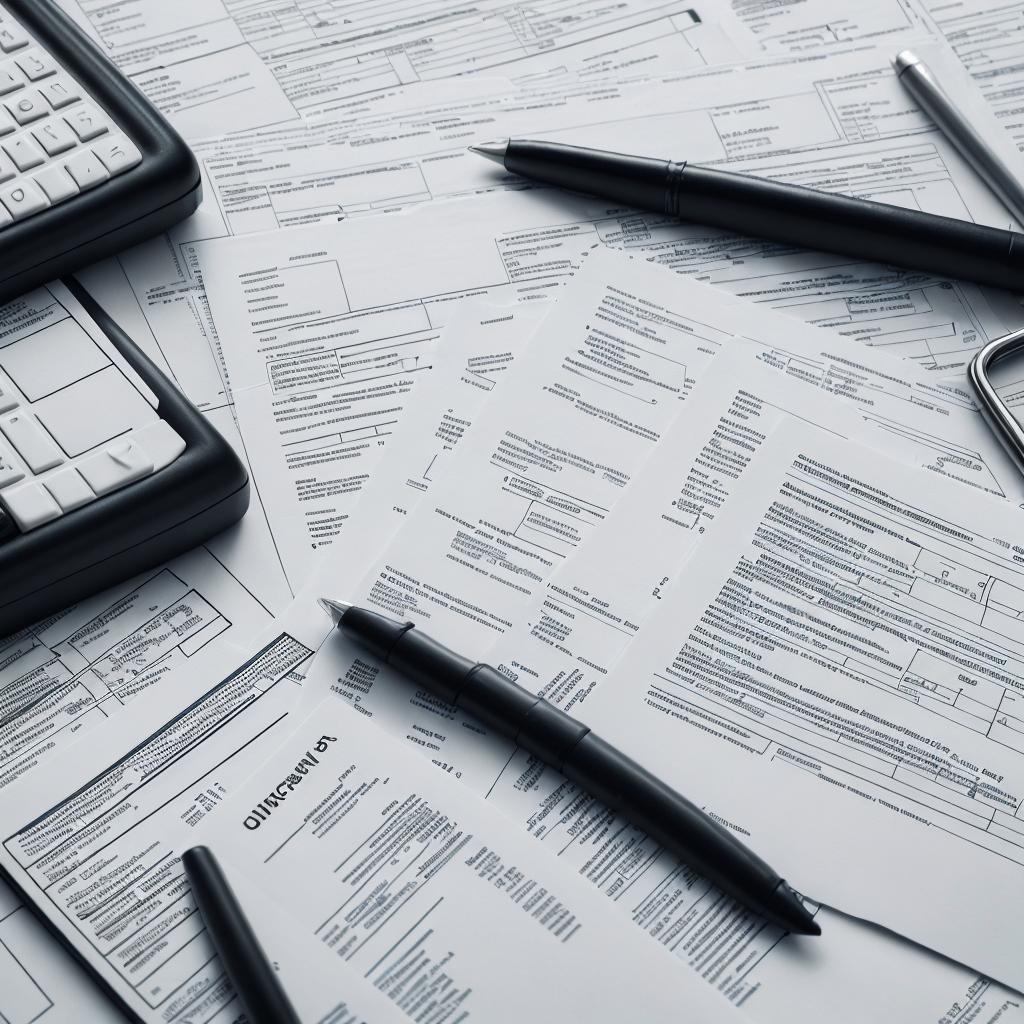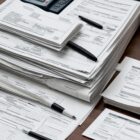Required Documents for Your Medicaid Application

Are you ready to apply for Medicaid? Before you begin, make sure you have all the necessary documents.
In order to complete your application, you will need to provide proof of your identity, income verification, residency documentation, and information about your assets and resources.
Additionally, you will need to submit medical and health information.
Don’t worry, we’re here to help you navigate the process. Just gather these documents and you’ll be one step closer to getting the assistance you need.
Key Takeaways
- Proof of identity documents such as a valid driver’s license, state-issued identification card, passport, or birth certificate are necessary for a Medicaid application.
- Income verification requires providing copies of pay stubs, federal tax returns, and bank statements for the past three months.
- Residency documentation can include a lease agreement, utility bill, valid driver’s license or state ID card, or a bank statement or pay stub with the current address and name.
- Assets and resources need to be disclosed with bank statements, documentation for investments and properties, and proof of ownership to avoid delays or penalties in the application process.
- Medical and health information should include medical records, prescription records, relevant medical documents, and documentation related to chronic illnesses, disabilities, or mental health conditions, as well as health insurance coverage.
Proof of Identity
To prove your identity for your Medicaid application, you’ll need to provide documentation with your full legal name and photograph. This is an important step in the application process, as it ensures that you’re who you say you are, and that your information is accurate.
The documents you can use to prove your identity include a valid driver’s license, state-issued identification card, or a passport. These documents should have your current legal name, date of birth, and a clear photograph of you. If you don’t have any of these documents, you can also provide other forms of identification, such as a birth certificate, social security card, or military identification card.
It’s important to ensure that the documents you provide are current and not expired. Additionally, if you have recently changed your name, you’ll need to provide legal documentation of the name change, such as a marriage certificate or court order.
Income Verification
For income verification on your Medicaid application, you’ll need to provide documentation. This is an important step in the application process to determine your eligibility for Medicaid benefits.
To ensure a smooth and efficient application process, it’s essential to gather the necessary documents ahead of time. Here are the key documents you’ll need to verify your income:
- Pay stubs: Provide copies of your most recent pay stubs, covering at least the past month. This will help establish your current income level.
- Tax returns: Include copies of your federal tax returns for the past year. This will provide a comprehensive view of your annual income.
- Bank statements: Submit your bank statements for the past three months. This will help verify any additional income or assets you may have.
By providing these documents, you’ll help the Medicaid office accurately assess your income and determine your eligibility for benefits.
Remember to make copies of all documents for your own records and submit the originals with your application. It’s also advisable to keep track of any changes in your income during the application process, as this information may be required later on.
Residency Documentation
Gathering the required documents for your Medicaid application, including income verification, is crucial in determining your eligibility for benefits. Now, let’s delve into the next important aspect: residency documentation.
To prove your residency, you will need to provide documents that show you live in the state where you are applying for Medicaid. The table below outlines the acceptable forms of residency documentation:
| Residency Documents | Examples |
|---|---|
| Lease agreement | Rental agreement or lease contract |
| Utility bill | Gas, water, electricity, or phone bill |
| Driver’s license or state ID card | Valid identification issued by the state |
| Bank statement or pay stub with your address | Document showing your current address and name |
Make sure you have at least one document from each category to demonstrate your residency. It’s important to note that residency requirements may vary by state, so it’s essential to check with your local Medicaid office for specific guidelines.
Once you have gathered all the necessary residency documentation, you can move on to the next step of your Medicaid application: providing information about your assets and resources.
Assets and Resources
Now, let’s move on to what you need to provide to show your financial situation: your assets and resources. When applying for Medicaid, it’s important to disclose all your assets and resources to determine your eligibility for the program.
Here are the required documents and information you’ll need to gather:
- Bank Statements: Provide copies of your bank statements for the past three months. This includes checking, savings, and any other accounts you may have.
- Investment Statements: Submit documentation for any investments you own, such as stocks, bonds, mutual funds, or retirement accounts.
- Property Ownership: If you own any properties, including real estate, land, or vehicles, you’ll need to provide proof of ownership, such as deeds or titles.
By providing these documents, you can accurately demonstrate your financial situation and determine whether you meet the eligibility criteria for Medicaid.
It’s essential to be thorough and honest when disclosing your assets and resources. Failing to do so may result in delays or potential penalties in the application process.
Remember to gather all the necessary documentation to ensure a smooth Medicaid application process.
Medical and Health Information
To provide the necessary medical and health information for your Medicaid application, gather your doctor’s records and prescriptions. These documents are crucial in demonstrating your need for Medicaid assistance. Start by contacting your healthcare provider to request copies of your medical records. These records should include information about your diagnoses, treatments, and any ongoing conditions.
Additionally, gather all prescription records from your pharmacy, including medications, dosages, and frequency of use. It is important to gather all relevant medical documents, such as lab results, X-rays, and specialist reports. These documents provide a comprehensive overview of your health status and help support your application for Medicaid. Be sure to include any documentation related to chronic illnesses, disabilities, or mental health conditions.
In addition to medical records, include any documentation related to your health insurance coverage, including policy information, premium payments, and coverage dates. This information helps establish your current healthcare situation and any financial hardships you may be facing.
Remember to organize your documents in a clear and concise manner, making it easier for the Medicaid office to review your application. By providing accurate and complete medical and health information, you increase your chances of successfully obtaining Medicaid coverage.
Frequently Asked Questions
Can I Apply for Medicaid if I Don’t Have a Government-Issued Identification Card or Driver’s License as Proof of Identity?
You can still apply for Medicaid without a government-issued ID or driver’s license. Other forms of identification, such as a birth certificate or social security card, can be used as proof of identity.
How Does Medicaid Verify My Income if I Am Self-Employed or Have Irregular Income?
Medicaid verifies your income if you’re self-employed or have irregular income by reviewing your tax returns, bank statements, and other financial documents. They may also require you to provide documentation of your business expenses.
Can I Use a Utility Bill or Lease Agreement as Residency Documentation if I Don’t Have a Government-Issued Document?
You can’t use a utility bill or lease agreement as residency documentation if you don’t have a government-issued document. Medicaid requires specific forms of proof, so make sure you have the right paperwork.
Are Retirement Accounts Considered as Assets When Applying for Medicaid?
Yes, retirement accounts are typically considered as assets when applying for Medicaid. Be sure to include them in your application, as they may affect your eligibility for the program.
Is There a Specific Timeframe Within Which I Need to Provide Medical and Health Information for My Medicaid Application?
You don’t need to provide medical and health information for your Medicaid application within a specific timeframe. However, it’s important to submit all required documents in a timely manner to avoid any delays in the application process.



